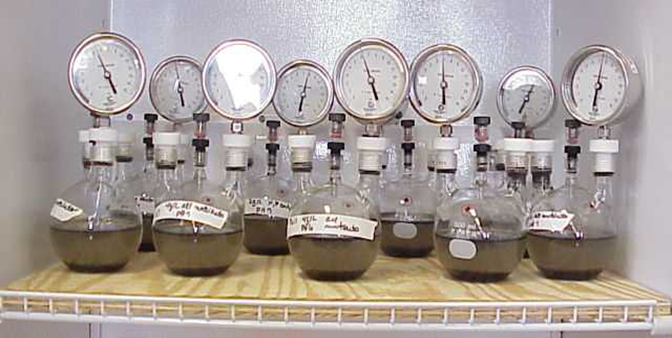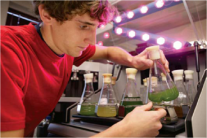UL Engineering Leads a Team of Researchers to Provide Life Support on NASA's Human Planetary Camp on Mars
Fri, 03/15/2019 - 8:05amThe Energy Institute of Louisiana (EIL) led by Dr. Mark E. Zappi, PE of Chemical Engineering has received a $2.2M grant from NASA and the Louisiana Board of Regents to develop a novel wastewater treatment system for use on human planetary camps, like on Mars. The project will develop a bio-based system of bacteria and algae to treat the wastewaters generating by humans, and possibly animals, inhabiting the Mars camp, while producing bioenergy and converting the excess carbon dioxide within the cabin air back into oxygen. The carbon dioxide is produced by the humans as they breathe within the cabin area of the camp, but since there is not a stable known supply of oxygen on Mars, capturing the oxygen within the CO2 back into breathable air is critical. Seven UL faculty from the colleges of Engineering and Sciences are teaming up with over 15 UL students to develop this novel system. UL has filed a patent application for the system under development which is known as the BIOSYS unit. Envisioned products coming from the BIOSYS unit as it treats the wastewaters on Mars are methane and hydrogen for fuel cells, protein for use as a recovered food source, fats and oils for producing green lube oils, reclaimed water for reuse by the camp inhabitants, and oxygen for reuse within the cabin atmosphere. Prior to use for drinking water, the recycled water exiting the BIOSYS unit is polished using a novel water treatment adsorbent under development by Civil Engineering.
Zappi states that albeit that the UL Team is internationally acclaimed for their years of developing methods to convert wastes into valuable chemicals, the challenges of designing a system that can be transported to Mars while not over taxing the energy systems of the planetary station and doing this within a very limited area are immense, yet exciting. The students in particular are so excited to think that potentially their work could be used on Mars. Zappi also states that the concepts under development for NASA could also be used within Earth-bound urban areas where human-derived sewage could potentially one day be converted in Urban Biorefineries to numerous co-products of great value.

Small Scale Bioreactors Converting Food Wastes into Methane
Small Photo: Culturing microalgae while testing light sources.

